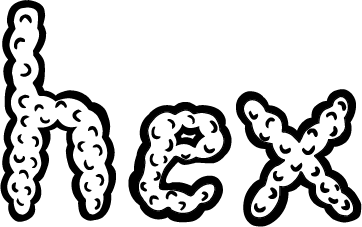There is an aperture in my hand, a thumb-print whirl where tissue once flowed uninterrupted—like a channel grown curious and turning back on itself. Last week it was a mosquito bite: a temporary river, nothing more. I worried it open with fingernails and restlessness; skin ceded ground until, sometime in the night, the bite became a breach.
Morning: a snail no larger than my pinky glides from the wound, leaving a delicate silver calligraphy across the pillowcase. It negotiates the cotton’s capillary ridges with the patience of a river finding every possible mouth to sea, making its way toward the window’s first light. I hold my breath, astonished less by its existence than by the elegant hydraulics of emergence.
At breakfast the hole brightens, flexes, and a sparrow unfolds from me feather by feather, the way a lantern’s ribbing expands. It hops to the rim of my cereal bowl, dines on cornflakes, drinks the sugared milk, then burps like a polite child. I’m supposed to catch the 8:02, so I email my supervisor a vague apology. As I tap Send, a russet paw appears, followed by an entire fox that settles across my shoulders, its tail looping round my throat in a silken Möbius. One decisive bat and the phone skitters away, screen-down. It regards me with the bright, reckless eyes of someone who has never paid rent.
Responsible adulthood has been wobbling since you died, your absence a silence that keeps finding new rooms. Still, I rummage the bathroom cabinet for a bandage. The first-aid box is a clattering reliquary of lightbulbs, stray screws, expired NyQuil. I press a Band-Aid over the hole.
For an hour it holds. I reach Midtown before the mule appears, gentle-eyed and stolid. The Band-Aid is nowhere to be seen. It isn’t a large mule, but it’s still the biggest thing so far to have emerged from my hand, and I have to admit that the hole must be bigger on the inside than on the outside. In fact, it might be connected to some other place—if not an entirely different dimension—though I’m no expert on how these things work. Impossible as the physics feel, it’s real: warm breath, hay smell, patient clop beside me down 50th Street. It reminds me of the time we were on our road trip through Zion and Bryce, when I leaned forward, clutching the console, and shouted, “Donkey!” You raised one eyebrow and corrected me: “Deer.” I rubbed my eyes, and it was in fact a deer on the side of the road, though I could have sworn it had a broad face, long lashes, hay-hungry lips, and the soft eyes of an ass. The memory tugs loose and bumps softly in my chest.
A year ago you—husband, teller of bad jokes, finder of stray cats—would have taken a photo, said we should keep it for proof that the world loves surprises, same way you did. But you aren’t here, and there is no entering an office after a mule has stepped out of your hand, so we descend instead to the E train. Afternoon commuters glance up, perform the city’s practiced blink of indifference, and return to their phones. Back home, the mule noses open the refrigerator and feasts. I make no protest, though I imagine the food bills if this keeps up.
By evening the apartment has rearranged into a microbiome: snail tracing luminous gyres on the rug, sparrow preening atop the curtain rod, fox coiled in a vulpine galaxy on the couch, mule dozing like a folded moon. None hunt or flee. They simply are—sediments settling into mutual shape. They breathe, filling the spaces you left behind.
I study the hole. Its rim pulses, a dark littoral, a small horizon. I consider tape, stitches, even cauterizing—methods of refusal. But behind each idea I hear your laugh, the way you used to admire every wild thing that wandered near us, the same way you’d taken me in and promised to feed me forever—a vow that was delivered to much laughter from our wedding guests.
Life after you, I realize, is nothing more than this. A shape with negative volume: empty, capable of being filled. The body invents physics to keep living. My blood has opened a conduit to an elsewhere, importing emissaries of shell, feather, fur, and hoof to remind me that boundaries leak, that absence is merely another geometry of presence.
The animals breathe a quiet roomful of warmth. I extend my hand, palm up, the hole a small dark mouth.
For a moment I think I hear you there. A whisper, low and close, as if your breath is trapped inside me, waiting to be let out. I almost speak your name, almost beg you to step through, whole, the way the mule and the fox and the sparrow did.
But the hole only pulses, rim dark, patient.
I rest my hand on my chest. The night air flows through me, steady, and I breathe until the room is full of animals and silence, and my heart curls small and alive against my ribs.
_________
Mizuki is a writer from Japan, currently living in the foothills of the Rocky Mountains. During the day she works on climate action. In her spare time, she worries about climate collapse, and in her writing, she explores humanity on the brink, or simply people in strange places and strange times. Mizuki’s writing has appeared or is forthcoming in HAD, SmokeLong Quarterly, The Forge, Frazzled Lit, Flash Frog, Lost Balloon, and other places. She was the winner of The SmokeLong Quarterly Award for Flash Fiction 2025 and was shortlisted for the 31st Bath Flash Fiction Award. She is a 2025 Best of the Net nominee.
